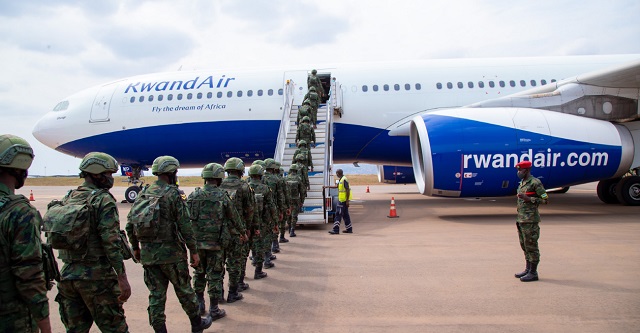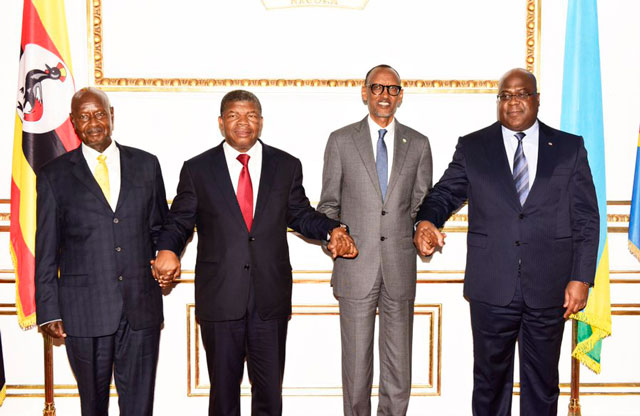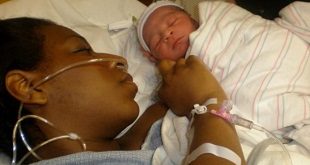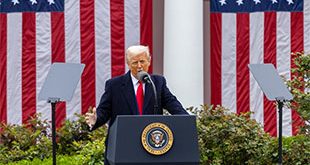
The forgotten feud awakens?
Kampala, Uganda | IAN KATUSIIME | Ten years after President Yoweri Museveni and his Rwandan counterpart Paul Kagame starred in high profile reconciliation, there seems no path to making peace again after two years of border closure. Instead, new tensions could flare up.
In July, Rwanda deployed a 1000-person contingent to Mozambique involving Rwanda Defence Forces (RDF) and the Rwanda National Police for combat and security operations. Mozambique requested for the deployment after months of insecurity and terrorism in its northern Cabo Delgado province. The country also deployed 750 military personnel in a UN-backed stabilisation mission in Central African Republic weeks ago.
Uganda has troops in the latter country.
The news that on Aug. 12 President Museveni had dispatched Gen. Ivan Koreta, a week after his retirement from the army, for talks with Mozambique President Filipe Nyusi over the country’s security challenges, raised eye brows. Koreta reportedly expressed Uganda’s availability to help- which was interpreted as a readiness for military deployment. The Uganda Rwanda feud could be entering a new phase.
Any deployment where Rwandan and Ugandan troops are in a possible entanglement is bound to cause apprehension in the region due to the history of the two armies in the DR Congo in the nineties.
Even as peace remains elusive, the two countries keep crossing paths in potentially tricky situations. The leading political organisations in both Uganda and Rwanda; the National Resistance Movement (NRM) and the Rwanda Patriotic Front (RPF) have a common history-to put it more accurately, the RPF was born out of NRM.
Kagame’s forces, the Rwanda Patriotic Army (RPA), captured power in 1994 with Uganda’s support. But they soon fell out and are now far from allies.
The clashes of the Rwandan and Ugandan armies in DRC in what became known as the two Congo wars was the epitome of this brotherly feud.
The two armies planned the invasion of Congo in 1996, threw out the ageing dictator Sese Seko Mobutu with who they had disputes, and installed Laurent Kabila. The two armies of Rwanda and Uganda turned Congo into an arena to air their quarrels and a testing ground for their artillery. But similar problems emerged between Museveni and Kagame on one hand and Kabila on the other. Kabila kicked them out but was shortly after assassinated in 2001 and his son Joseph Kabila assumed power.
Lost opportunities
These latest developments come exactly ten years since July 29, 2011, when Museveni visited Kigali and was jovially received by Kagame.
The four day state visit by Museveni was an intimate reunion after years of recriminations and open hostility. It was heralded by some as the dawn of a new era in Uganda Rwanda relations.
The diplomatic pageant had both an urban and rustic feel as the two leaders also met at Kagame’s country home in Muhazi. One analyst expressed a degree of optimism about the relations saying the visit had an element of “cattle kraal diplomacy” with Kagame gifting Museveni ten cows. The two Presidents met again in December that year and spent Christmas together with their families in Uganda.
Doubts however remained. There were always murmurs that the two country’s relations were balanced on a knife edge. Museveni sought to banish those sentiments when on NRM’s 26th anniversary in 2012, he bestowed on Kagame the Pearl of Africa Medal- the highest medal the state of Uganda can give- reserved for Heads of State. The Ugandan president also officially recognised the role played by Rwandans in the Bush War that brought Museveni to power in 1986.
Paul Kagame was one of the original fighters of the National Resistance Army (NRA) recruited by Museveni to take up arms against the Milton Obote government in the successful guerilla war from 1981-1986.
Four years later in 1990, the Ugandan government led by Museveni was a rear base for Kagame as he led Rwandan exiles sheltered in Uganda in a similar war against the Rwandan government of Juvenal Habyarimana.

Open hostility
In the excitement of rapprochement, Ugandan security forces allegedly started a rendition program in which senior officials who had fled Kigali to exile in Uganda were picked up and allegedly handed to Rwanda.
Some of the most prominent names were Joel Mutabazi, a former bodyguard of Kagame and another Rwandan security officer, Jackson Kalemera, in 2013, and handing them over to Kigali without their consent. Both were prominent refugees and handing them to Rwanda was a breach of international law. The Uganda police presented it as an error and `arrested’ the officers involved.
But the case exposed the depth of Kigali’s reach into the high echelons of Ugandan security. At the same time, the Rwanda National Congress (RNC) which was founded in 2010 by exiles Dr. Theogene Rudasingwa, Gen. Kayumba Nyamwasa, Gerald Gahima, and Patrick Karegeya, was said to have bases in Uganda.
Matters came to a head when, in October 2017, several top aides of then-Inspector General of Police, Gen. Kale Kayihura were arraigned before the Military Court Martial in Kampala together with a Rwandan ex-general Rene Rutangungira. They were accused of kidnap and espionage in Uganda on behalf of Rwanda.
Against this background, many analysts feared a flare up of open confrontation between Uganda and Rwanda. Kagame’s decision to close their common borders on February 27, 2019 did not come as a complete surprise.
Neither was it surprising that Kagame accused Uganda on one hand of abducting Rwandan citizens in Uganda, locking them up in non-designated areas and on the other of hosting and facilitating dissidents of the RNC.
Since then, and despite numerous dispute resolution summits, citizens of the two countries have helplessly looked on at the quarrel between the two former comrades. Although affairs of the citizens, many of whom share blood relations across the border, continue under the new normal, many still wonder when Kagame will re-open the border.
Forgotten feud
But top officials of both countries who initially attempted the unenviable task of normalising relations seem to have moved on.
Sam Kutesa, the long serving minister of foreign affairs was dropped from Cabinet in June and so was Olivier Nduhungirehe, who was Rwanda’s minister of state for East African Community (EAC). Nduhungirehe was dropped last year a few months after the Katuna meeting between Museveni and Kagame and is now Rwanda’s ambassador to the Netherlands.
Nduhungirehe was considered a negotiator’s nightmare by the Ugandan side because of his abrasive style and his rabble rousing posts on Twitter.
When contacted recently, Adonia Ayebare, Uganda’s permanent representative to the U.N. and a special envoy of President Museveni told The Independent that he could not remember the last time he was involved in negotiations with Kigali. He said he was busy with UN issues and referred queries to the Foreign Minister.
Another intermediary who was involved in the intractable process of dialogue expressed frustration and vowed not to go back to Rwanda.
The Rwandan Minister of Foreign Affairs and International Cooperation Vincent Biruta in a press conference in Kigali on July 30 offered hints of a near dead end in the talks.
“In relation to Uganda, the situation has not changed very much. But government of Rwanda stands ready to restore good relations with all our neighbours including Uganda.”
As other activities like sport and social events between the two countries go on, political engagement at the highest levels remains fraught with uncertainty and tension. Partisans in each country look on and cheer depending on the internal political developments in either countries.
“Nothing I know that suggests the issues are being resolved, or that they will be resolved soon,” says Fred Golooba-Mutebi, a political scientist who straddles his time between Uganda and Rwanda.
“Relations are at a standstill and likely to remain that way until the issues for resolution are resolved,” he says. Golooba says he has been studying Rwanda for 20 years and argues that Ugandans love talking about Rwanda but from a point of lack of information.
Gatete Nyiringabo Ruhumuliza, a lawyer and political analyst based in Kigali, says he does not see normalisation in the near future. “The conflict, in my opinion, is in the best interests of the Ugandan establishment.”
He, however, says that some of Rwanda’s demands on Uganda are difficult to assent to.
“There is similar resignation in Rwanda, sadly, people have turned the page,” he adds, “For instance the project of railway has been abandoned and all the investment gone in building a bigger airport, same thing with the electricity, Rwandair doesn’t expect fifth freedom (flights) in Uganda anytime.”
Ruhumuliza also cites the standing directive precluding Rwandans from travelling to Uganda which he compares to the one on Americans travelling to Cuba.
“We’ll wait for RNC people – Kayumba and Co – to retire.” He told The Independent in an email response. Kayumba Nyamwasa is a former Chief of Staff of the Rwandan Defence Forces who fled to exile in South Africa after he disagreed with Kagame. Rwanda accuses Uganda of providing safe harbor to RNC.
“If there is a department in Rwanda working on normalisation, it is a symbolic one, out of respect to Angolans. It is not even part of the conversation anymore. Sorry I wish I had better news.” Ruhumuliza, a Senior Fellow at the Institute of Policy Analysis and Research, concluded.
The last time Kagame and Museveni met physically was in February 2020 at the Uganda-Rwanda border at Katuna. Expectations were high that the summit would culminate in the opening of the border a year after it had been shut down by Rwanda. It turned out to be another symbolic meeting but without much takeaway.
Present were Angolan President Joao Lourenco and the DRC leader Felix Tshisekedi who were present at other summits held in Luanda, Angola. It was the last major summit between the two and few expect anything of the sort to happen again.
****
 The Independent Uganda: You get the Truth we Pay the Price
The Independent Uganda: You get the Truth we Pay the Price




Whatever form of diplomatic brinkmanship the two states engage in,the irrational closure of the common border is the lowest point the two leaders have sunk in exposing their ineptitude. One thing has come out clearly – There is no meaningful trading between the two states as you can tell from the type of cargo that got stuck when the border closed ,imagine unprocessed cassava chips. However what is most painful are the effects on the communities that live and transact daily at this common border. Yet the decisions affecting them are made in the air conditioned offices very far in the respective capitals or even in Europe! Until the two leaders learn that it pays to be your brothers keeper, the money spent on spies in each country could be better utilized or if they so wish steal it nobody will complain.
Thank you.
Very well said sir!. This is an ego issue between two people who both never forgive an offense. M7 as we know cannot be trusted to accept any outcome except one that makes Kagame grovel and kneel with M7 prevailing. Starting from Obote warning that M7 was untrustworthy, to the 1980 Elections ( fighting a bush war when he got less than 100 votes even in his own village), to Nairobi peace jokes and finally today the elimination of military generals and opposition politicians, we see that M7 will never forgive a slight and if you ever cross him or threaten his desire to rules forever, you got a target on your back!
Let’s pray that we, the grass will not suffer as the two elephants fight.
the people of the two countries have no problems with each other. What we need is that our presidents reconcile. After all, they have a long shared history.
Maybe in the interests of sparing us Pan Africanists the shame, embarrassment and disappointment of witnessing and experiencing whatever is going on between these two iconic Pan African leaders… they should just put a boxing ring for them somewhere deep in the bush, they go there alone and they finish their issues from there, and then they come back having resolved their personal gripes which are now hindering not just relations between two inseparable sibling countries but even progress towards realising our Pan African goals… individuals and their personal gripes really should not be allowed to stand in the way of East African and Pan African goals. We cannot lose any more time… what guarantee do we have that their successors will even be Pan Africanists? As this window of having two Pan Africanist leaders heading both countries closes, aren’t we losing our best chances of realising East African and Pan African goals? Because of what? Time is going! We are even so tired of this non-story. Let them go and box each other somewhere in the bush and the story finishes from there. Spare us the indignity, shame, embarrassment, disappointment, and loss of progress towards our Pan African goals.
When it comes to East African and Pan African things, these two are just good at putting on suits, posing for cameras, and signa-signing funny papers in English. That’s even how they will be remembered in history books. Paper Pan Africanists just. We remain hopeful as Pan Africanists, but so far the disappointments have been too much.